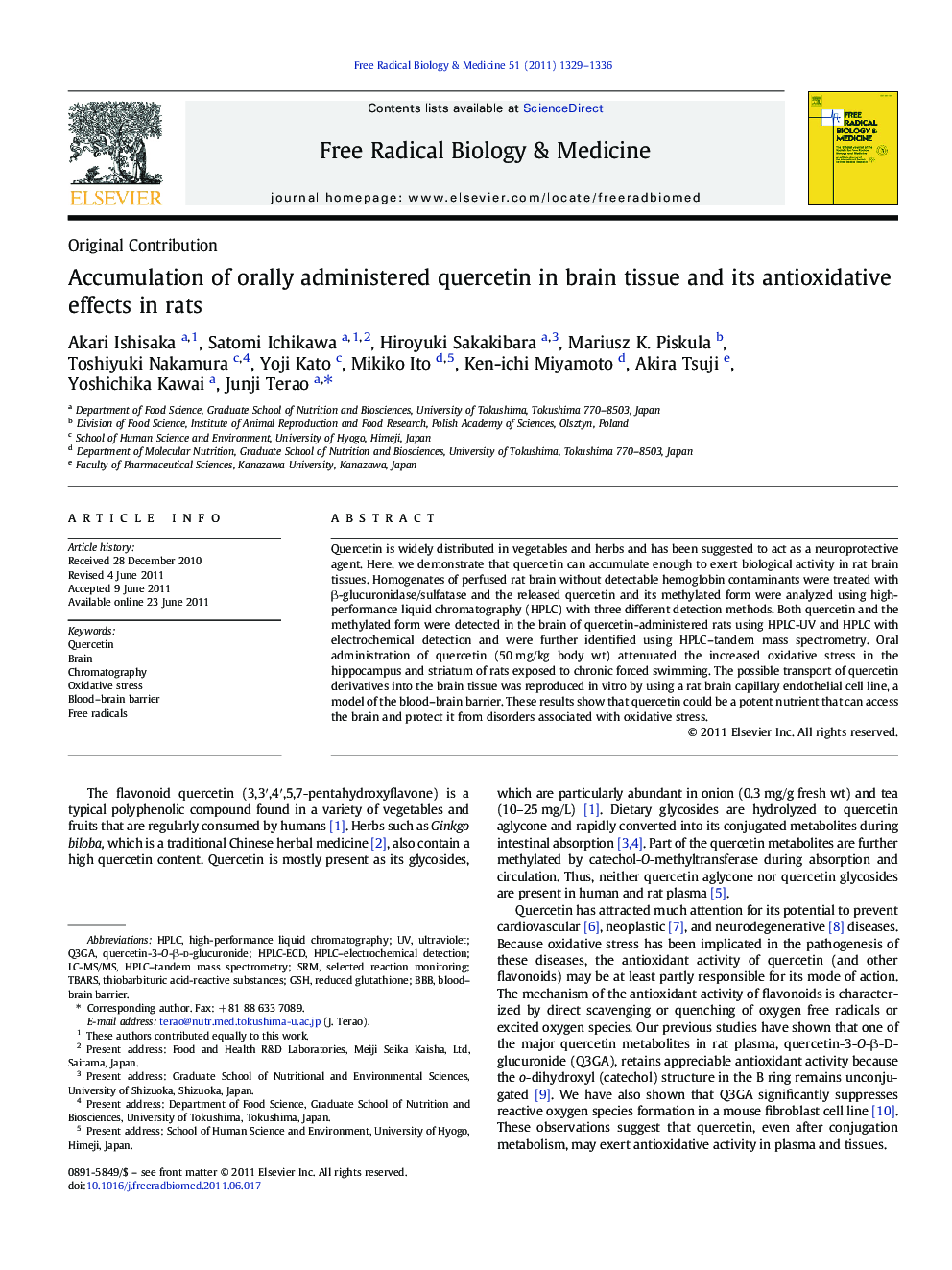| Article ID | Journal | Published Year | Pages | File Type |
|---|---|---|---|---|
| 10738323 | Free Radical Biology and Medicine | 2011 | 8 Pages |
Abstract
Quercetin is widely distributed in vegetables and herbs and has been suggested to act as a neuroprotective agent. Here, we demonstrate that quercetin can accumulate enough to exert biological activity in rat brain tissues. Homogenates of perfused rat brain without detectable hemoglobin contaminants were treated with β-glucuronidase/sulfatase and the released quercetin and its methylated form were analyzed using high-performance liquid chromatography (HPLC) with three different detection methods. Both quercetin and the methylated form were detected in the brain of quercetin-administered rats using HPLC-UV and HPLC with electrochemical detection and were further identified using HPLC-tandem mass spectrometry. Oral administration of quercetin (50 mg/kg body wt) attenuated the increased oxidative stress in the hippocampus and striatum of rats exposed to chronic forced swimming. The possible transport of quercetin derivatives into the brain tissue was reproduced in vitro by using a rat brain capillary endothelial cell line, a model of the blood-brain barrier. These results show that quercetin could be a potent nutrient that can access the brain and protect it from disorders associated with oxidative stress.
Related Topics
Life Sciences
Biochemistry, Genetics and Molecular Biology
Ageing
Authors
Akari Ishisaka, Satomi Ichikawa, Hiroyuki Sakakibara, Mariusz K. Piskula, Toshiyuki Nakamura, Yoji Kato, Mikiko Ito, Ken-ichi Miyamoto, Akira Tsuji, Yoshichika Kawai, Junji Terao,
